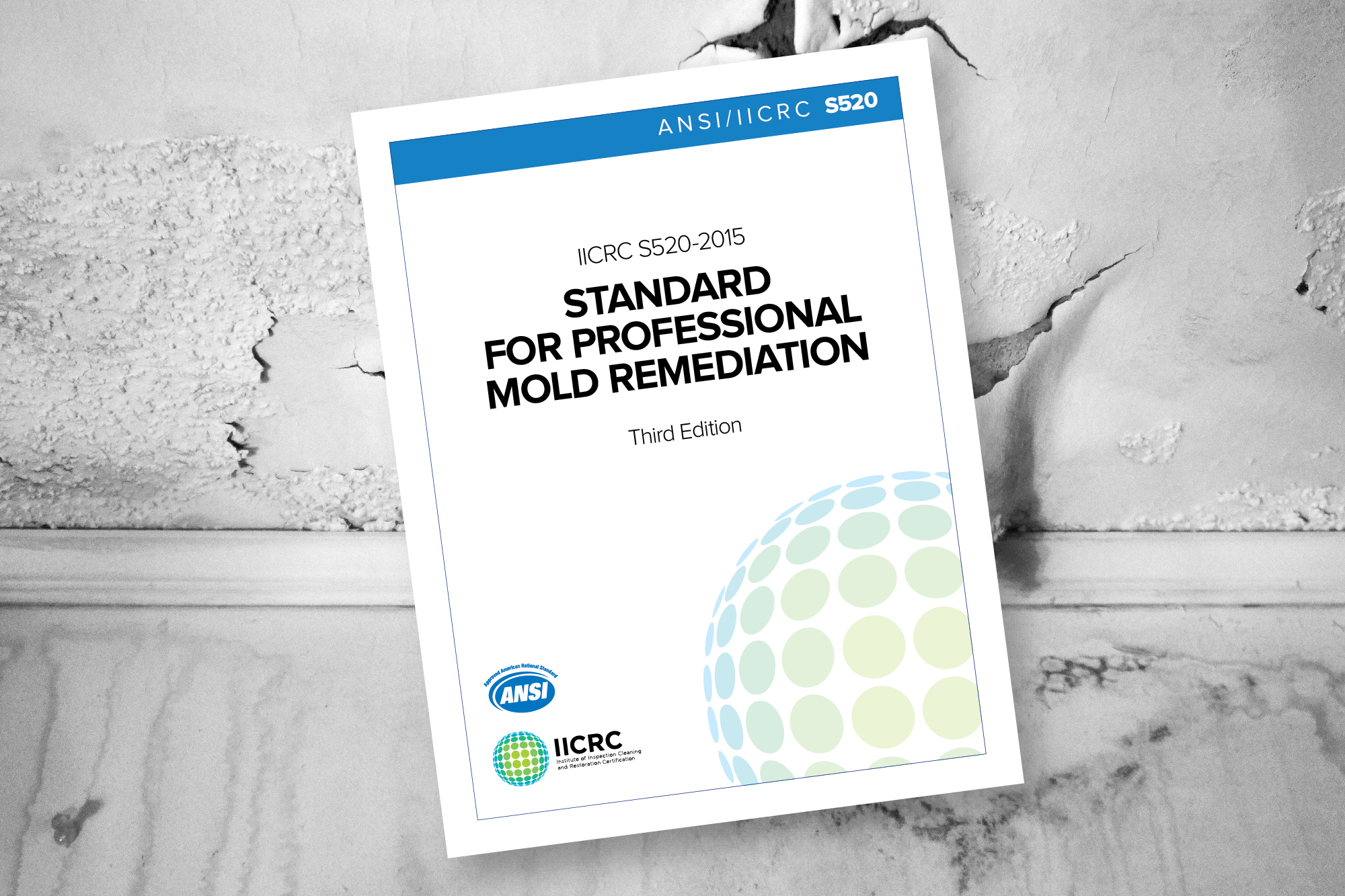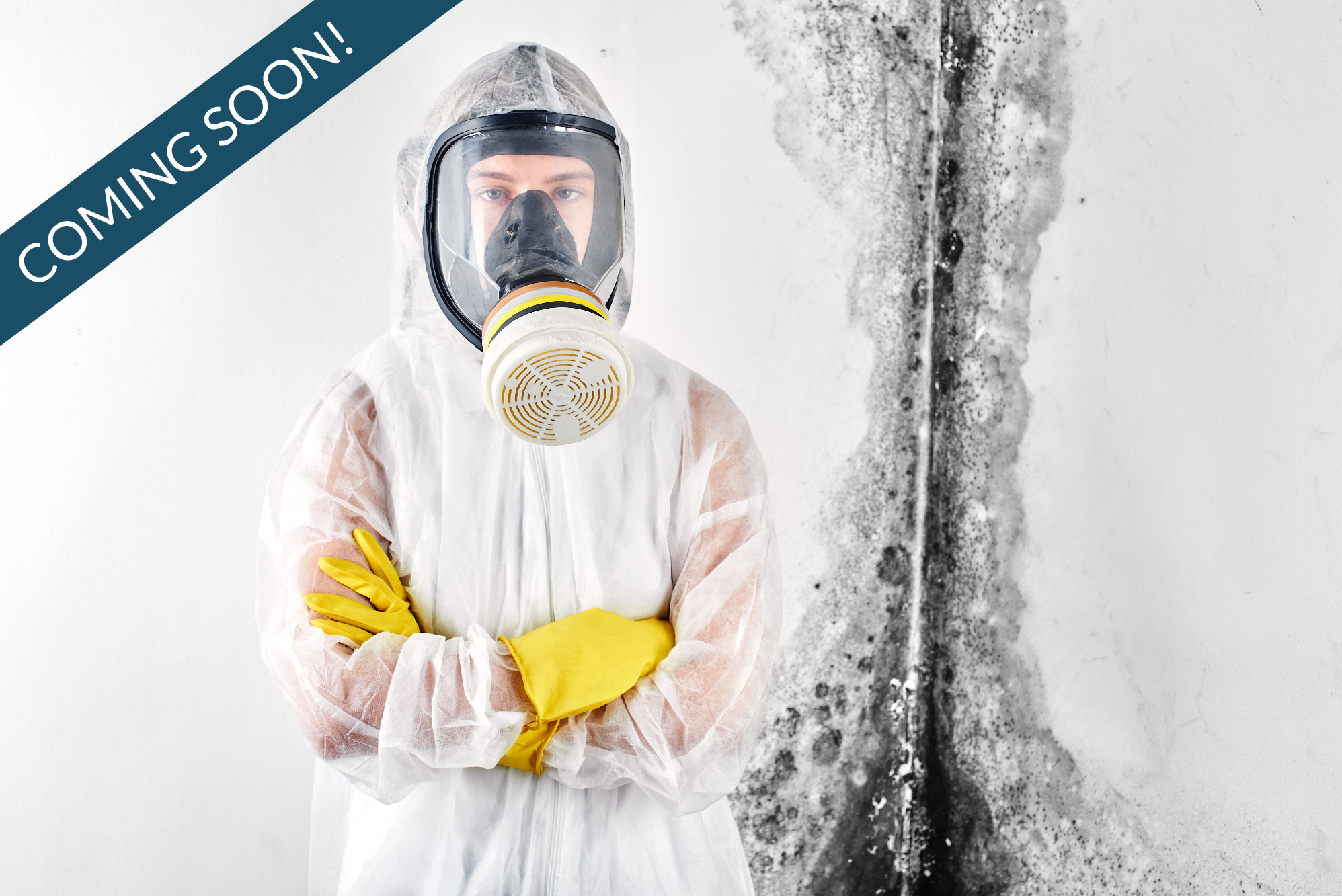
Mold continues to destroy healthy homes and displace families.
Highlight the importance of proper mold remediation and assessment through accredited Industry Standards and Certifications in mold laws and regulation.
Stay up to date on relevant mold laws and regulations here.
States that require or reference accredited industry standards on mold remediation and/or certifications that align with the accredited standard.



Alaska
The Municipality of Anchorage recognizes the “presence of significant visible mold in hotels and other visitor accommodations” as a public nuisance (source).
The Alaska Department of Health and Human Services has some mold resources on its website; however, there are no mold remediation regulations in the state.
Alabama
Alabama references basic EPA mold and moisture guidelines but does not provide any other guidance or regulations around mold or mold remediation in the state.
Arkansas
A Mold Investigation Advisory Board in Arkansas recommended not creating legislation or regulation around mold remediation in 2012. Arkansas provides basic information about mold online but does not have existing regulations.
American Samoa
No information was found on mold regulations.
Arizona
Arizona provides online mold FAQs but does not indicate any regulations around mold remediation.
California
California has relatively extensive guidance about mold on their website regarding the dangers of mold and how to address a mold problem, including directing citizens to organizations like the IICRC that certify mold remediators.
While there are no mold remediation regulations in the state, California does include mold in the California Residential Building Code as a condition that makes a home substandard (source).
Colorado
A landlord must comply with American National Standards Institute standards for the remediation and clean up of a residential premises following an environmental public health event.
Connecticut
Connecticut provides fairly extensive mold abatement guidance on its website, referencing other documents like the ANSI/IICRC S520.
The state does not, however, have mold remediation regulations.
Senate Bill 423 (SB 423) would require the Office of Policy and Management to establish an indoor air quality assessment program. Under the bill, indoor air quality looks to include the overall potential health factors within a school facility, including air quality, mold, and other potentially harmful toxins.
Delaware
Delaware provides basic guidance about mold online but does not have existing mold remediation regulations.
SB 270 seeks to establish an evaluation and assessment system to determine how clean, safe, and functional a school building is. The presence of visible mold is included in the evaluation. It further requires the creation of a contractor certification program for indoor air quality services (if schools choose to contract with trained and certified contractors for air quality remediation).
The IICRC provided testimony on this bill encouraging Delaware legislators to include accredited industry standards and certifications. Read the testimony HERE.
District of Columbia (DC)
DC has a mold licensure program. Indoor mold professionals must pass a department-approved examination to obtain a license.
Multiple IICRC certifications are recognized as approved examinations, which align with accredited industry standards.
Florida
Florida requires anyone providing mold-related services to be licensed.
The IICRC Mold Remediation Specialist (MRS) exam is one of the exams approved for licensure as a Mold Remediator. The MRS is currently in the process of becoming accredited against the ISO/IEC 17024 standard and aligns with the accredited industry standard.
Georgia
Georgia regulates mold in tourist accommodations but not in other dwellings. The state does not have mold remediation regulations.
Guam
No specific mold remediation guidelines were found.
Idaho
Idaho provides some information on mold online but does not have mold remediation regulations.
Iowa
Iowa provides minimal mold guidance online and does not have any mold remediation regulations.
Indiana
Indiana provides links to external sources regarding mold (one of the links is currently dead). The state does not note any mold remediation regulations.
Kansas
Provides the link to the EPA’s Mold Resources page.
Kentucky
Kentucky statute (KRS 367.83801–.83807) requires mold remediators to follow principles from the ANSI/IICRC S520.
Louisiana
To be licensed as a Mold Remediator, the applicant must 24 hours of approved training. See source.
A mold remediation specialist is required to obtain a license issued by the State Licensing Board for Contractors in order to practice remediation in Louisiana. The specialist must complete training in both mold assessment and mold remediation and also be instructed in Louisiana’s “Unfair Trade Practices and Consumer Protection Law”.
Maine
Maine provides a fact sheet on mold but does not have specific mold remediation regulations.
Maryland
Maryland has introduced mold legislation that has been delayed and does not have specific mold remediation regulations.
House Bill 361 (HB 361) would require the Department of the Environment to adopt certain regulations that would establish uniform standards for mold assessment and remediation.
Massachusetts
Massachusetts provides fairly extensive mold resources but does not have specific mold remediation regulations.
Michigan
Michigan’s Department of Health and Human Services provides a resource page that includes links to relevant CDC and EPA articles but does not have specific mold remediation rules.
Mississippi
The Mississippi Department of Health has a Q&A section and links to a CDC page. See source.</p>
Missouri
The state provides some resources on mold out but does not have specific mold remediation rules.
Montana
The Montana Department of Public Health and Human Services provides a resource page with EPA and CDC links.
Nebraska
The state provides some resource documents but does not have specific mold remediation regulations.
Nevada
The Nevada Division of Public and Behavioral Health resource page with relevant EPA and CDC links.
New Hampshire
New Hampshire requires anyone providing mold assessment services to hold an accredited certification.
New Jersey
New Jersey does not have a licensing program for those performing mold services.
The New Jersey Department of Health provides mold guidelines for residents but stops short of specific mold regulations.
S 2457 and A 3274 would require Department of Community Affairs to establish procedures for inspection and abatement of mold hazards in residential buildings and school facilities, and certification programs for mold inspectors and mold hazard abatement workers.
In the News: “Uninhabitable:’ Mold leaves NJ renters to battle health effects, costly cleanup”
S 81 and A 4039 provide that a prospective homeowner could request a mold inspection that a licensed home inspector must perform
New Mexico
New Mexico only has an informational page on its state department of health website.
New York
New York has a mold licensing program that requires approved training.
S 5097 and A3714 would require the disclosure of indoor mold history upon the sale of certain real property. It would also require the Commissioner of Housing and Community to promote rules and standards for the remediation and prevention of indoor mold. See our memo to representatives on S 5097 here.
North Carolina
The Department of Health and Human Services has a resource page. See source.
North Dakota
North Dakota has a resource page. See source.
Northern Mariana Islands
In 2018, $7 million was allocated to mold remediation.
Other than the monies allocated in 2018, there has been no recent legislation regarding mold. There is no information page to inform residents of the dangers of mold or the importance of remediating it.
Ohio
The state has a resource page that provides information surrounding the dangers of mold.
House Bill 251 (HB 251) was introduced which would require sellers and landlords to disclose their knowledge of mold, create a public mold campaign, and require the state to review mold remediation technology every 5 years. See our letter/written testimony on this bill here.
Oklahoma
The state has a resource page that provides information surrounding the dangers of mold.
There has been no legislation introduced by the Oklahoma legislature regarding mold.
Oregon
The state has a resource page that provides information surrounding the dangers of mold.
The city of Portland recognizes certifying entities for mold sampling, testing, remediation, and treatment, including the IICRC; however, this regulation is not state-wide.
Pennsylvania
No resource page provides information surrounding the dangers of mold .
Senate Bill 635 (SB 635) was introduced that would offer financing opportunities to building owners who make repairs to increase indoor air quality. See bill.
Due to the introduction of SB 635, it appears the state is aware of issues relating to mold, but there has been no mold-specific legislation introduced in the state legislature.
Rhode Island
The state has a resource page that provides information surrounding the dangers of mold.
South Carolina
The state has a resource page that provides information about the dangers of mold.
2019-2020 Bill 3127 was a joint resolution that established the Mold Abatement and Remediation Study Committee that was tasked with studying the impact of mold in public areas and the best way to remediate the mold in public areas.
South Dakota
The state has a resource page that provides information surrounding the dangers of mold.
Tennessee
The state has a resource page that provides information surrounding the dangers of mold.
Tennessee does have a specialty license for mold remediation as part of their larger licensing regulation.
Texas
Texas has comprehensive mold remediation licensing regulations but does not mention accredited industry standards.
The state is currently in the process of revising the existing mold remediation regulations. The IICRC has submitted comments encouraging references to the ANSI/IICRC S520, and is serving on a working group to advise on regulation revisions.
House Bill 716 (HB 716) calls for a study and report to be done regarding mold contamination in housing developments that are wholly or partly supported by financial assistance administered by the Texas Department of Housing and Community Affairs.
US Virgin Islands
The territory has no resource page that provides information about the dangers of mold.
Utah
The state has a resource page that provides information about the dangers of mold.
Vermont
The state has a resource page that provides information about the dangers of mold
H 463 would create the Working Group to Address the Presence of Toxigenic Mold in Buildings who would be tasked with drafting a model plan for tracking the effects of mold, developing a mold awareness campaign, proposing mold training for town health officers, recommending continuing education, and reviewing how real estate disclosures should be changed.
Virginia
The state has a resource page that provides information about the dangers of mold.
House Bill 1824 (HB 1824) was enacted to require property disclosure forms to advise buyers to get a mold inspection done on a home that follows EPA guidelines. See bill.
House Bill 868 (HB 868) would require the landlord to include in every rental agreement the terms and conditions governing the landlord’s duty to maintain a fit premises, which includes mold. See bill.
Washington
The state has a resource page that provides information about the dangers of mold.
West Virginia
The state has no resource page that provides information about the dangers of mold.
Wisconsin
The state has a resource page that provides information about the dangers of mold.
Wyoming
The state has no resource page that provides information about the dangers of mold.